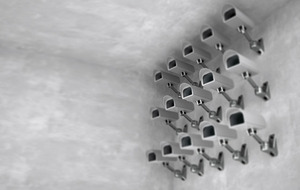The new online giants make Orwell’s Big Brother look like a benevolent nanny. Should we worry about their personal data collection and analysis? What should we think about their lobbying to dilute the European privacy laws to be voted in 2014? And how does this relate to a bus driver texting on his phone while driving, and eradicating dengue mosquitos in Lahore? Let’s unravel these events and see what we can predict for the coming years.
A young kid made a 10’ movie of his bus driver sending text messages whilst driving. The kid then sent his movie to the local media. Outrage erupted. Trawling the internet I found worse, like a bus driver handling two phones and steering with his elbows. Or a bus driver urinating in his own bus. All were filmed by bystanders and then made public.
Then there is the war for European privacy, where companies like Google, Facebook, and Microsoft are lobbying the European Parliament to loosen the General Data Protection Regulation privacy law. There is nothing new of course, except recently an Austrian student cared and launched Lobbyplag to explain the data protection rules, who watered down the law, and who reinforced it. This in turn resulted in exposure of a Belgian parliamentary on national television after he denied any knowledge of lobbying for the dilution of the data protection rules… and since then he has backpedalled like a true politician.
But the main point here is not the data protection law. Companies like Google and Facebook know more about their users than we imagine, but in return they offer free services. So unless you are willing to pay for email, maps, movie broadcasting and social networking, this is how online companies make money. The point is that the ‘lobby process’ got exposed, by a student digging up information on the internet and visualizing it for the public.
For my last example, I skip to Lahore, where dengue fever kills hundreds of people each year during monsoon season. Municipal workers drive around in trucks spraying insecticide to kill the dengue mosquito’s larvae. But corrupt workers sometimes refuse to spray without a bribe, or just sell the insecticide. To combat the corruption Lahore’s authorities provided the workers with cheap smart phones and instructed them to take geo-tagged pictures before and after dispensing the insecticide. These pictures were then published online for public scrutiny.
So on one hand you have powerful online companies, who by collecting data and using predictive algorithms potentially know everything about you. On the other hand, you have individuals, wielding power with a smart phone filming or taking pictures of inappropriate or illegal behavior, and posting it on the internet. I believe both trends will grow, and that we are only seeing the tip of the iceberg.
Google predicting you will have flu in a couple of weeks, and promoting anti-flu medicine? Expect this on a computer near you soon. Individuals exposing both corrupt or incompetent civil servants, criminals and asocial activities like dumping waste in their neighborhoods? Will happen more and more.
In a sense, both trends keep each other in balance. So I would not worry. The first day the new big brothers step out of line, somebody with a smart phone will be sitting there to record it. Just ask Mitt Romney.
